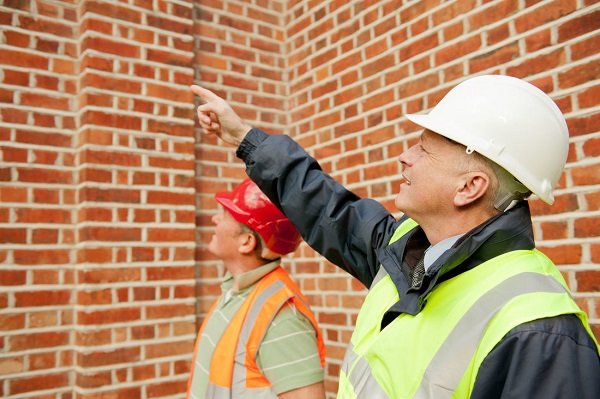All Categories
Featured
Table of Contents
Read This Before Your General Home Inspection in Oz 2022
Prior to you purchase a home, among the things you need to do is to have it inspected out by a professional house inspector. Yes, we can hear your objection: "Purchasing a house is costly enough as it is! Why would I pick to hand over hundreds more if I'm not needed to?" In this short article, we'll delve into what a home inspection can expose and whether it's worth employing an inspector as a house buyer.
A comprehensive assessment is a critical action in purchasing a house, and lots of lenders won't use funding on a home without one. Home evaluations can discover potentially lethal problems like mold or defective circuitry that might trigger a significant fire. Most potential buyers have a seven-day window after a house examination to leave the purchase.
In new house construction, inspections generally cover:: Monitoring before the concrete is poured (once put, there's extremely little that can be fixed).: Checking the structure and mechanics before the drywall is laid.: A complete walk-through is carried out of the finished home.
Building Inspections Adelaide By Licensed Builders in Wattleup WA 2023

The common examination lasts 2 to three hours, and you should be present for the inspection to get a direct explanation of the inspector's findings and, if needed, ask concerns. Likewise, any problems the inspector discovers will make more sense if you see them personally instead of relying entirely on the photo images in the report.
While it is impossible to note whatever an inspector could look for, the following house assessment list for buyers need to give you a general idea of what to expect. The inspector will complete a complete evaluation of the beyond the structure. This will include climbing into any crawlspaces under the home and utilizing a ladder to reach and examine the roofing system and other products.
Nevertheless, the pest inspector (yes, you might desire to engage among those too), not the home inspector, will look for actual damage from termites, etc. The inspector will let you know which issues are cosmetic and which could be more major. If the foundation is not noticeable, and it usually is not, the inspector will not have the ability to analyze it directly.
Questions To Ask Your Home Inspector Before A ... in Doubleview Aus 2022
The inspector will check for areas where roofing system damage or poor installation might permit water to enter the home, such as loose, missing out on, or incorrectly protected shingles and broken or damaged mastic around vents. They will likewise check the condition of the gutters. Home inspectors do not usually need to examine specifically for termite damage, mold, asbestos, or water contamination.
The inspector will also finish a thorough examination of the interior of the house. They will inspect everything from the ceiling to the cabinets under the sink. The house inspector will examine all faucets and showers, search for noticeable leaks and check the water pressure. They will also determine the kind of pipes your home has if any pipes are visible.

The inspector will take a look at your heating and cooling system to estimate the age of the furnace and air conditioning unit, identify if they work appropriately, and suggest repairs or maintenance. An inspector can also provide you a concept of the age of the home's ducting, whether it may have leaks, if your house has sufficient insulation to lessen your energy bills and whether there is any asbestos insulation.
Learning About The Property in Beeliar WA 2021

The inspector will also let you understand what kind of condition it is in and offer you a basic idea of the number of years it has actually left. The inspector will often check cooking area devices that feature the house to make sure they work, however these are not constantly part of the assessment.
The inspector will ensure the laundry room is effectively vented. A poorly maintained dryer-exhaust system can be a major fire threat. If the house has a connected garage, the inspector will ensure the wall has the appropriate fire rating and hasn't been damaged in any way that would compromise its fire ranking.
The inspector will check for visible leakages, effectively protected toilets, sufficient ventilation, and other concerns. If the restroom does not have a window or a ventilation fan, mold and mildew can end up being problems, and wetness can warp wood cabinets gradually. A house appraisal is a various action than a house evaluation, but is also typically a required contingency.
What Does A Building Control Inspector See? in Alfred Cove Australia 2022
A home inspector just assesses the house's condition for general security or possible problem areas, like a leaking roofing, peeling paint, or anything not up to the regional building code. A home examination can't identify whatever that may be incorrect with the property; it just look for visual cues to issues.
Table of Contents
Latest Posts
Why Do I Need A Pre-purchase Building Inspection? in Craigie Western Australia 2020
What To Look For In A Building Inspector in Padbury Aus 2020
Why You Should Consider A Home Inspector Before You Buy in Doubleview Western Australia 2023
More
Latest Posts
Why Do I Need A Pre-purchase Building Inspection? in Craigie Western Australia 2020
What To Look For In A Building Inspector in Padbury Aus 2020
Why You Should Consider A Home Inspector Before You Buy in Doubleview Western Australia 2023